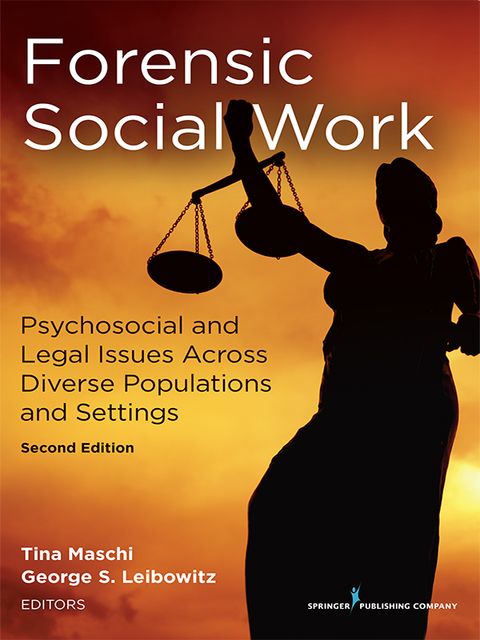Description
Efnisyfirlit
- Cover
- Title Page
- Copyright
- Contents
- Contributors
- Preface
- Acknowledgments
- Share Forensic Social Work: Psychosocial and Legal Issues Across Diverse Populations and Settings, Second Edition
- Part I. A Human Rights and Social Justice Approach to Forensic Practice
- 1. Conceptual and Historical Overview of Forensic Social Work
- 2. Life Course Systems Power Analysis: Understanding Health and Justice Disparities for Forensic Assessment and Intervention
- 3. Human Rights: Some Implications for Social Work
- 4. Social Work and the Law: An Overview of Ethics, Social Work, and Civil and Criminal Law
- Part II. Systems of Care and Forensic Practice
- 5. Education, Social Work, and the Law
- 6. Thinking Outside the Box: Tackling Health Inequities Through Forensic Social Work Practice
- 7. Housing
- 8. Employment at the Intersection of the Juvenile Justice System
- 9. Families as a System in Forensic Practice
- 10. Family and Social Services: Meeting Basic Human Needs of Income, Food, and Shelter
- 11. Child Welfare
- 12. Domestic Violence
- 13. Substance Use and Co-Occurring Psychiatric Disorders Treatment: Systems and Issues for Those in Jail, Prison, and on Parole
- 14. Critical Issues, Trends, and Interventions in Juvenile Justice
- 15. The Criminal Justice System: A History of Mass Incarceration With Implications for Forensic Social Work
- 16. Adult Protective Services at the Intersection of Aging and Disability
- 17. Justice-Involved Veterans: Programs and Services
- 18. The Immigrant Justice System
- 19. Intersectoral Collaboration: Mental Health, Substance Abuse, and Homelessness Among Vulnerable Populations
- Part III. Core Skills: Practice, Research and Evaluation, Policy, and Advocacy
- 20. Empirically Informed Forensic Social Work Practice
- 21. Motivational Interviewing
- 22. Forensic Interviewing
- 23. Expert Witness Testimony in Forensic Practice and Justice Systems
- 24. Restorative Justice and Community Well-Being: Visualizing Theories, Practices, and Research—Part 1
- 25. Restorative Justice: What Social Workers Need to Do—Part 2
- 26. Empowerment and Feminist Practice With Forensic Populations
- 27. Family Engagement and Social Work in Statutory Settings
- 28. Collaboration and Care Coordination
- 29. Human Rights Issues and Research With Prisoners and Other Vulnerable Populations: Where Does Evidence-Based Practice Go From Here?
- 30. Forensic Research and Evaluation: Program and Policy Interventions That Promote Human Rights and Social Justice
- 31. Case Level and Policy Advocacy
- 32. Victim Advocacy
- 33. Family Televisiting: An Innovative Psychologist-Directed Program to Increase Resilience and Reduce Trauma Among Children With Incarcerated Parents
- Index







Reviews
There are no reviews yet.